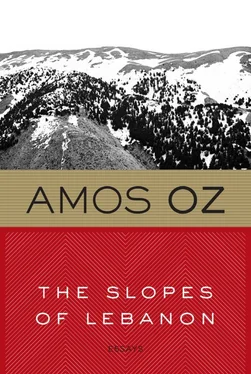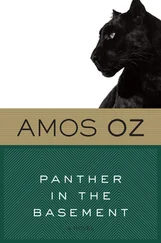Eliav does not claim that these are, in fact, the cardinal values of the Bible. Nor does he claim that these values were considered by our forefathers as cardinal; nor even that they must be cardinal at all. No. In his words, they are “considered by this author as cardinal.” This is a position involving both humility — anyone else is entitled to emphasize other values — and spiritual independence — Eliav asks no one’s permission before deciding what he feels is worthy of being considered cardinal. In this matter, he accepts neither the authority of former generations nor the conventions of the religious establishment.
True, considerable support may also be found in the Bible for the opposite of those values: support for holding life in contempt, for intolerance, oppression of other people, discrimination, hatred, cruelty, and aggression. Eliav does not ignore it. He brings up well-known examples of such biblical justifications for injustice and tribalism and analyzes their terrifying significance. But his basic premise is that every generation, and every reader, has the right to decide what is to be marked in approbatory blue, what is to be emphasized in warning red, and what is not to be stressed at all for the moment. To give but one example, the Bible certainly contains the story of the merciless wars of Joshua, son of Nun, which are currently quite fashionable as backing for a policy of cruelty and savagery against the Arabs; but it also tells how King Solomon presented twenty of the cities of the Land of Israel to King Hiram of Tyre. Yet Solomon was not struck down by divine fire and brimstone; nor is he condemned by any of the Prophets for donating part of his realm. Modern-day rightist Israeli factions would have treated pious King Solomon as a traitor and destroyer of Israel for making “territorial concessions.” Imagine, though, what would happen if a present-day “king” of Israel suddenly decided to transfer twenty cities to a neighboring country; imagine what sort of epithets would be launched at him, not to mention sticks, stones, and, quite conceivably, bullets.
Eliav’s insistence on the right to select the values “considered by this author…” is, in my opinion, a classic Zionist act; and no less the act of a free Jew. For, after all, the struggles in Israel are not being waged between the “keepers of the Bible” and those who renounce it, or between “good” Jews and “tainted, Europeanized” Jews. They are being waged between differing concepts of Judaism — some of them humanitarian, others tribal and primitive, and still others midway between. And all of them, unfortunately, are deeply rooted in the Bible and in other Jewish religious texts.
Lova Eliav wrote New Heart, New Spirit in an attempt to extricate the Bible from the hands of those who wield it like a club; in an attempt to emphasize the humanitarian light that shines forth from some portions of it. As he writes: “ New Heart, New Spirit, then, represents an attempt to raise once again the banner of human values — Jewish and universal — sanctified in the Great Book, as well as an appeal to rally around that banner.”
Lova Eliav, choosing to face the future, looks back toward the Bible in hope of having some effect on what will come to pass following these present evil times.
Davar, October 17, 1986
Eulogy for Ephraim Avneri
(Avneri died on Friday, May 21, 1982, about two weeks before the start of the war in Lebanon.)
IT IS DIFFICULT to part from you. All your life you disliked big words. If I try to express even a little about you, I will have to beware of your reprimand at our regular lunch table in the kibbutz dining hall, as you turn your penetrating blue eyes toward me and let your sharp wit fly, together with a juicy Jewish anecdote, as you always did.
But at the risk of infuriating you, I will say something now. All your life you were a handsome man, immaculate. You had in you the energy of dreams, the temperament of a world reformer; you were without a speck of zealotry or hatred. You were a realistic revolutionary, practical, keen, untouched by the dust of pettiness, a man with clear, strong beliefs and opinions, but without a shadow of dogmatism. You were saturated to your fingertips in Jewish melodies, yet even in your old age your eyes were turned more toward the future than back to the past. You were devoted to ideology, but capable of forgiveness, compromise, and humor.
You told me much about your childhood, about the Galician town where you were born, your rebellious youth, and the secret agonies you suffered because of your rebellion, suffering that lasted all your life. I carry your story like a precious pledge.
Your whole life was a struggle. You often struggled with your comrades here at Kibbutz Hulda, sometimes even with the teachers and mentors you so admired, and you struggled unceasingly with yourself. Doubt and hesitation accompanied you like a secret inner melody — in the youth movement in Galicia, in the village of Migdal when you first settled in this country, during the hard early years at Kibbutz Hulda, during your years of public service, and afterward when, at the age of fifty-some, you began to study as an undergraduate for a university degree, until the years of your illness, when you returned home to take upon yourself in your last years the job of a local telephone switchboard operator for the kibbutz exchange. You never ceased to be a man who lives by his faith but is fascinated by heresy. And because of this inner struggle you always radiated wisdom and charm.
In all the struggles that took place at Kibbutz Hulda during the last thirty years, at least, you always favored tolerance, consideration, and compromise with individual vagaries, even though some of those vagaries made your blood boil. And the more readily you forgave the weaknesses of others, the more severely you judged yourself. Perhaps that was why you were a brilliant, persevering student all your life, yet refused to become a teacher; a warm, close friend who refused to become a leader, even when you were called to leadership. You were an indefatigable man of action, yet you avoided power and position like the plague.
In a taped conversation with my daughter, Fania, about the early years at Hulda, you told her, “It would be worthwhile to talk someday about what it meant for a boy of twenty to arrive in this country alone, without a home, without a family, without a woman, as solitary as a cut-off finger… and the kibbutz is the only place where you had any emotional connections. It took me several years to understand that the kibbutz is not just a farm or a village, as some referred to it, but primarily the emotional connection, the extended family, the relationships….” Everyone who knew and loved Ephraim Avneri can hear the sound of his voice in these words. Perhaps they comprise a kind of last will and testament: This is what we should try to be.
It is difficult to part from you. My peers frequently opposed you and your generation, the founders of Kibbutz Hulda. We argued, rebelled, ridiculed. Now, as we part from you, as we, too, have passed the halfway mark, we ought, quite simply, to tell you and your comrades, your generation: You are special. In thousands of years, the Jews have not produced a group of people who could compare with you. Who knows how many generations will pass before another group of dreamers and doers like you comes forth?
We have lost a beloved father, one of the founders of this place, one of the fathers of this wonderful, awesome era. For me, too, Ephraim was as precious as a father. Precious man, may our love go with you and may your spirit be with us.
(Remarks made on the occasion of receiving the Bernstein Prize for Literature, September 1983)
Читать дальше












